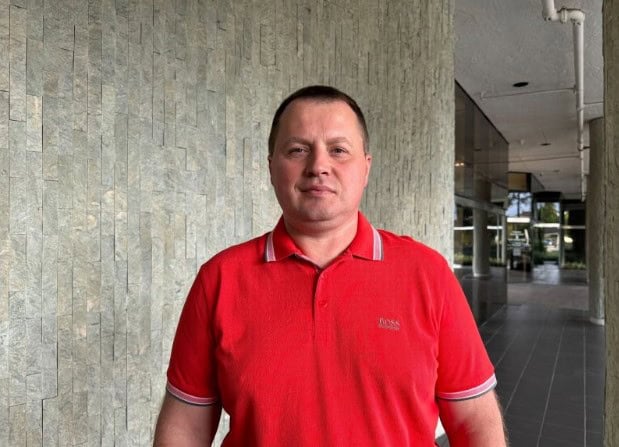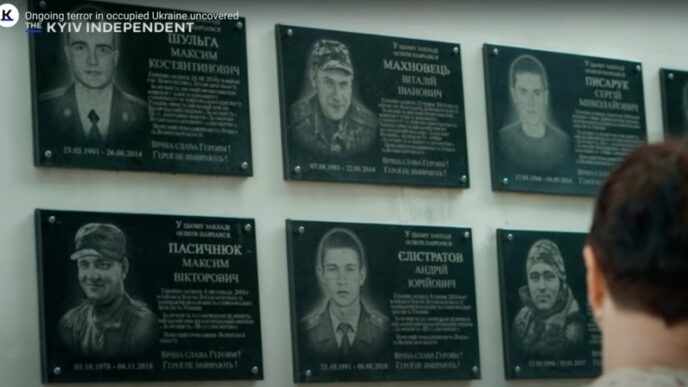The challenges of the modern world are far from normal: disasters, military conflicts, forced relocations and refugees, work in remote areas, and humanitarian aid to socially vulnerable populations. In each of these cases, one of the primary tasks is to provide people with food. And this food must be as nutritious as possible, easy to prepare, and suitable for transportation and long-term storage. Traditional options like dry rations and canned food, tested over decades, do not fully meet these requirements. This is why the innovative product, conceived and realized by Ukrainian businessman Yevhenii
Shevchenko, a member of the Ukrainian Chamber of Commerce and Industry, represents a true breakthrough in this specific market.
Shevchenko built his career in the food and industrial catering sector in Dnipro, Ukraine—dedicating 20 years of work after earning a master’s degree with honors in International Economic Relations. His family’s generations-long involvement in this field also played a role in his development. Yevhenii founded his own business, in 2014 and focused on a new promising direction: long-shelf-life food for special purposes that doesn’t require preservatives or special storage conditions.
The technology he proposed allows for the preparation of ready meals through sterilization, which are then packed in innovative soft food packaging, retort pouches, providing a long shelf life. This method has proven effective in practice: products have been supplied to schools, gymnasiums, orphanages, adult care homes, hospitals, psychiatric hospitals, industrial enterprises, as well as the National Guard and National Police of Ukraine.
“I consider the transition of social institutions to our services as the most significant achievement,” Yevhenii emphasizes. “The fact that the full production cycle of catering is carried out directly by the provider relieves these institutions of all issues related to purchasing quality products and controlling the preparation and distribution of ready-made food.”
Shevchenko completely transformed the approach to food supply in the social sector in Dnipro and the Dnipropetrovsk region. He was the first to implement food safety and quality certification based on the HACCP system—before this mandatory control system was legislated at the national level in Ukraine. Following that, he fully modernized the food supply logistics chain according to global quality and safety standards.
Analyzing years of experience, Shevchenko realized that a catering service model based on a network of kitchen factories is optimal for Ukraine. Food is centrally prepared using modern technologies and then delivered to sites, where it can be reheated and served. This approach ensures high quality and preserves all vitamins and nutrients. This naturally led to the realization that these ready-made meals should be long-lasting and usable both hot and cold. This required convenient packaging—not traditional tin or glass jars but multi-layered laminated retort pouches. The journey to implement this idea involved many experiments and changes.
Moreover, a varied and complete range of products needed to be developed.
As a result, today, the selection of ready-made meals is extensive and continually expanding: soups, cereals, legumes, potatoes with meat, poultry, vegetables, and mushrooms. The company is currently working on a line of fish and seafood dishes and a vegetarian menu. It’s important that these meals not only retain their nutritional value without preservatives and stabilizers for up to 24 months but also have a complete and appealing appearance. These are not the usual cream soups or pureed substances but visually pleasing dishes of traditional cuisine.
“We were the first in the region to develop such a line of ready meals, and I personally spent a lot of time monitoring the market to determine the range,” says Yevhenii. “Then we worked extensively on the technological processes, tested, adjusted, compiled detailed regulatory and technical documentation for each dish, and then passed state-level control and registration.”
This complex process required maximum precision at all levels. Specialists from the Odessa National Academy of Food Technologies developed for Shevchenko’s company the parameters for autoclave operations based on technologies created by his team. As a result, the unique high-pressure cooking method using special modes minimizes cooking time—thus preserving vitamins and minerals, while the sterilization method ensures perfect hygiene. Cooking in the autoclave based on these parameters was tested several times, and all dishes underwent strict laboratory control for organoleptic, physicochemical, microbiological, bacteriological, and radiological indicators.
These ready meals are supplemented with additional products—crackers, biscuits, tea, coffee, spices, as well as cutlery—and packaged into three-meal daily ration kits, fully covering a person’s daily requirement for vitamins, minerals, fats, proteins, and carbohydrates.
Naturally, these products immediately found a market.
“The idea of long-shelf-life food came to me while working in the social sector in remote locations without communications and normal living conditions,” explains Shevchenko. “I communicated extensively with people who couldn’t eat properly due to their professional circumstances. One of the main directions of our activity became the organization of meals for military personnel, industrial workers, social service beneficiaries, and schoolchildren.”
Ready meals and daily ration kits are supplied to police officers, rescuers, miners, shift workers, prisoners, refugees, and tourists. The convenience, quality, and benefits are evident: this nutritious food retains its taste even when cold, but it can also be easily reheated. The retort pouch can simply be placed in hot water, or alternative energy sources or flameless chemical elements developed at Shevchenko’s company can be used, which will be supplied with the kits.
Of course, such an innovation couldn’t help but attract attention beyond Ukraine’s borders. Leading specialists of the company visited European factories to familiarize themselves with food preparation technologies. Shevchenko now plans to establish cooperation and production processes in the United States and export special-purpose food and canned vegetable and berry products. Naturally, other markets have their own customary products, culinary preferences, and traditional recipes. But Shevchenko is ready for this challenge.
“Our specialists have developed a technology that can be adjusted based on the requests and national interests of our clients. Its uniqueness lies in the fact that we can develop and adapt a method of preparing long-shelf-life ready meals for any consumer group and for any national tastes,” says Yevhenii.
Kitchen factories and unique long-shelf-life food preparation and packaging technology can be implemented anywhere in the world… because there is a need for this everywhere in the world.















